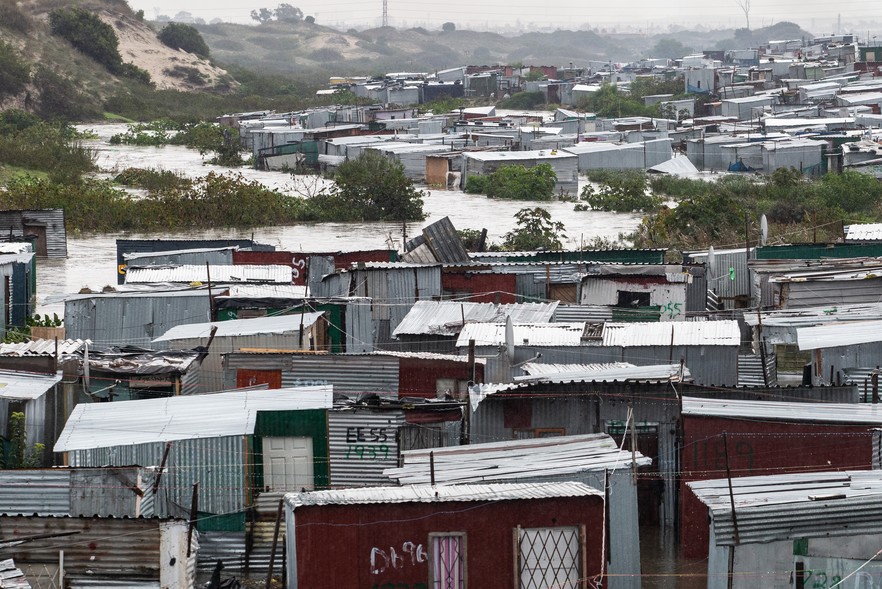News on Land
Get the latest news on land and property rights, brought to you by trusted sources from across the globe.
Sri Lanka's Army To Cultivate On Barren Land To Supplement Country’s Food Security Amid Crisis
Main photo: Sri Lanka facing worst economic crisis (file photo-representational photo). Photo by AP/PTI.
Sri Lanka’s army established its Green Agriculture Steering Committee (GASC) to supplement and promote the food security programme in the country facing worst economic crisis.
The Sri Lanka Army will take part in a farming drive aimed at cultivating over 1,500 acres of barren or abandoned state land to multiply food production and avert any shortage in the future, according to a media report.
The Land Portal, FAO and UNCCD launch podcast and portfolio on the relationship between land tenure and land degradation
June 17th 2022- Today marks #DesertificationAndDroughtDay and to highlight the occasion, the Land Portal, FAO and the UNCCD have come together to launch two new products; a portfolio and podcast, delving into the important relationship between land tenure and Land Degradation Neutrality.
The Changing Face of Kisii as Smallholder Agriculture Wanes
Sub-division of ancestral land has all but wiped out farming in Kisii, driving poverty and malnutrition and pushing the population into migration in search of greener pastures.
When my father died in the early 1990s, my mother and my two siblings moved to Kisii in Southwest Kenya. Widowed in her early 30s, my mother inherited about four acres of my father’s ancestral land on which to eke out a living for her young family.
Tanzania: UN experts warn of escalating violence amidst plans to forcibly evict Maasai from ancestral lands
UN human rights experts* have expressed grave concerns about continuous encroachment on traditional Maasai lands and housing, accompanied by a lack of transparency in, and consultation with the Maasai Indigenous Peoples, during decision making and planning. This trend most recently culminated in security forces’ violence against the Maasai Indigenous Peoples who were protecting their ancestral land in the Loliondo Division of Ngorongoro District, in northern Tanzania.
Deaths of Phillips and Pereira shine light on a region of the Amazon beset by violence
- Brazilian police reported on June 15 that they had found the bodies believed to be those of Brazilian Indigenous defender Bruno Pereira and British journalist Dom Phillips deep in the western Amazon.
- The bodies were found not far from where the pair disappeared on June 5, in the Vale do Javari region, considered the most violent region of Brazil, where criminal groups vie to seize land occupied by Indigenous and traditional communities.
- Similar conflicts occur all over the Amazon, with some land grabbers admitting that they will, if necessary, us
Tanzania: Halt brutal security operation in Loliondo - Amnesty International
Tanzanian authorities must immediately halt the violent forced eviction of the Indigenous Maasai community in Loliondo, and launch an urgent investigation into the security crackdown which has left dozens of people injured, many missing and a police officer killed, Amnesty International said today.
The Invention of Green Colonialism — the roots of Africa’s wildlife NGOs come under withering scrutiny
In ‘The Invention of Green Colonialism’, Guillaume Blanc has laid bare the colonial roots of the West’s drive to ‘save’ African wildlife and landscapes from the people of Africa. Such policies today often come in the guise of ‘sustainable development’ and the like. The bottom line, in Blanc’s view, is that as the West often lays waste to its own environment it imagines an ‘African Eden’ that never existed. The rural poor bear the brunt of this fantasy, which often seems to place the welfare of animals above the people of Africa.
Episode 3- Where do we land up on land tenure and land degradation?
In Indonesian Borneo, a succession of extractive industries multiplies impacts, social fractures
- Much of the landscape of Indonesia’s East Kalimantan province has been transformed, its formerly vast forests razed for logging, monocrop agriculture and open-cast coal mining.
- A recently published study analyzes how waves of extractive industries have affected the inhabitants of one village in the province
- The cumulative impacts of these industries were found to be severe, but also to vary depending on multiple factors including ethnicity, gender, wealth and age.
VP wants embargo on foreign estate development
6,000 health and environmental ‘time bombs’ still to be defused –South African Govt decades behind schedule
So little money has been allocated to cleaning up the legacy of the South African mining industry that it will take another 70 years to clean up just a fraction of the country’s more than 6,000 abandoned mines.
There are roughly 6,100 “derelict or ownerless” mines scattered across South Africa, many of which can expose people and the environment to significant harm due to pollution of the air, water and soil.







